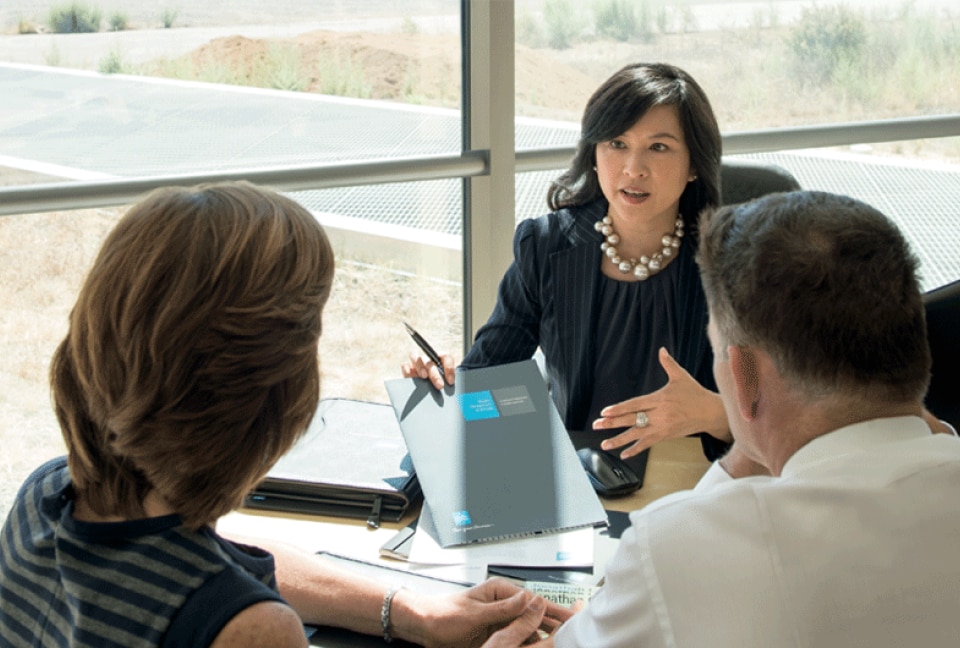Cybersecurity Awareness
Nothing is more important to Charles Schwab than the trust our clients have in us—not only to manage their money and financial information safely, but also to protect their futures. From banking to social media accounts, more and more of our information is online and at risk. To meet this challenge, we infuse security into every layer of our business—from technology to strategy to culture.


Scams are on the rise, so it's more important than ever to stay vigilant and take extra steps to protect your accounts.
In 2018 alone, victims of imposters scams lost $488 million, according to the Federal Trade Commission. Awareness is one of the most valuable tools that may help prevent you from becoming a victim. Click here to learn more about the different types of scams, how to protect yourself, and who to contact if you suspect a scam.
Learn more >
Cyber-Savvy Tips
At Charles Schwab we work together with our senior clients and their caregivers to help them understand the methods fraudsters use, and to work tirelessly to keep their data safe and secure. During these challenging and uncertain times, it’s more critical than ever to provide our clients with that much-needed peace-of-mind.
For additional information about cybercrimes, read Cybersecurity: a cornerstone of client trust.

Protect yourself against financial criminals
It's important that anyone who conducts their finances online or over the phone take advantage of ways to protect themselves from financial crimes. Here are a few resources to get you started.
• Types of Cybercrimes and Tips for Protecting Your Digital House
• More Tips for Protecting Yourself
• Identifying and Avoiding Fraudulent Pop-Ups
• Online Security Checklist
How to handle fraud or identity theft
If you suspect you’ve been the victim of identity theft or fraud, taking immediate action may help limit the impact. Consult this checklist for steps regarding reporting, securing your systems, and more.

Beware of common security myths
If you think cybersecurity is just a technology problem, you are at risk. From securing passwords to adoption of the right tools, we all have a role to play in safeguarding our privacy. Here are some common myths that many people incorrectly view as fact.

Cybersecurity
Cybersecurity
Cybersecurity: We are all in this together
Renowned cybersecurity expert, James Lyne, stopped by Schwab’s headquarters to share his unique perspective on cybersecurity and to answer questions.
[BACKGROUND MUSIC]
[TITLE SLIDE] Cybersecurity: We’re all in this together
James Lyne – Global Research Advisor at Sophos – Cyber security expert
1. [TEXT SLIDE] Over the last 15 years, what have been the biggest changes in how cyber criminals carry out their attacks?
2. [JAMES LYNE SPEAKING] I remember in the kind of early days of malicious code how cybercriminals would handcraft their viruses. And I think the biggest change in the past 15 years is that now cybercriminals build products and services that they sell to other cybercriminals that generate the malicious code instead. That means so much more malware out there and a much greater chance, sadly, one of us is going to run into it.
3. [TEXT SLIDE] How do you expect cyber criminals’ methods to evolve over the next five years and beyond?
[JAMES LYNE SPEAKING] I think the one thing that you got to recognize about cybercriminals is that they’re masters of innovation. They’re constantly finding new ways to attack us and to make money from our data. We’ve… we’ve seen them evolve from selling information, to stealing financial data, through to ransomware, which is brilliant in its ubiquitous [?] of application, so to absolutely everyone. So I think increased scale, increased creativity in making money from our data, and probably targeting a wealth of new devices are the themes we’ll see in the coming year.
4. [TEXT SLIDE] As internet connectivity finds its way into more devices, will that only increase the risks we face from cyber criminals?
[JAMES LYNE SPEAKING] As a society, we’re in a place right now where we’re connecting literally everything around us at every moment. Whether we’re at home or at work we’re constantly surrounded by new devices, mini-computers, that present an opportunity for cybercriminals to get unparelled influence over the physical world from the digital. And that’s a really scary trend when you look at the average level of security of these devices. They’re quite deficient. That being said, I’m a fan of all this new technology. I don’t think there is too much Internet connectivity. I think it’s about doing it purposely and making sure that the safety and security standards are where they need to be.
5. [TEXT SLIDE] How would you raise awareness with someone responsible for teenage children or elderly parents who are more vulnerable to attacks?
[JAMES LYNE SPEAKING] Well, this is illusion that cybercrime is predominantly driven by super unblockable uber viruses, where the government or big security teams are going to deal with the threat. And well some of that is true. In reality, it’s down to each and every one of us to exhibit some simple behavior to keep ourselves safe online. So if it’s one thing that everyone can do is to spread the word to our colleagues, our friends, our families. You are a target. Don’t fall into the trap of thinking cybercriminals aren’t interested in you. If you have an Internet connection, they want your data and they want your device.
6. [TEXT SLIDE] What are the best practices you would suggest to help keep data safe from cyber criminals?
[JAMES LYNE SPEAKING] One of the questions I’m constantly asked by people is ‘How do I limit my exposure of my… of my data online when I’m sharing it with so many parties?’ And there’s really two specific things I’d call out. Firstly, limit your service area of data. If you don’t need to provide information to an organization for service don’t do it. The other one that really is extremely helpful is using a password manager. A lot of breaches where data is lost is often due to people recycling passwords or using a weak password. A password manager makes it much easier to have a higher level of data security online.
For more information on how we protect client accounts, visit our SchwabSafe page.